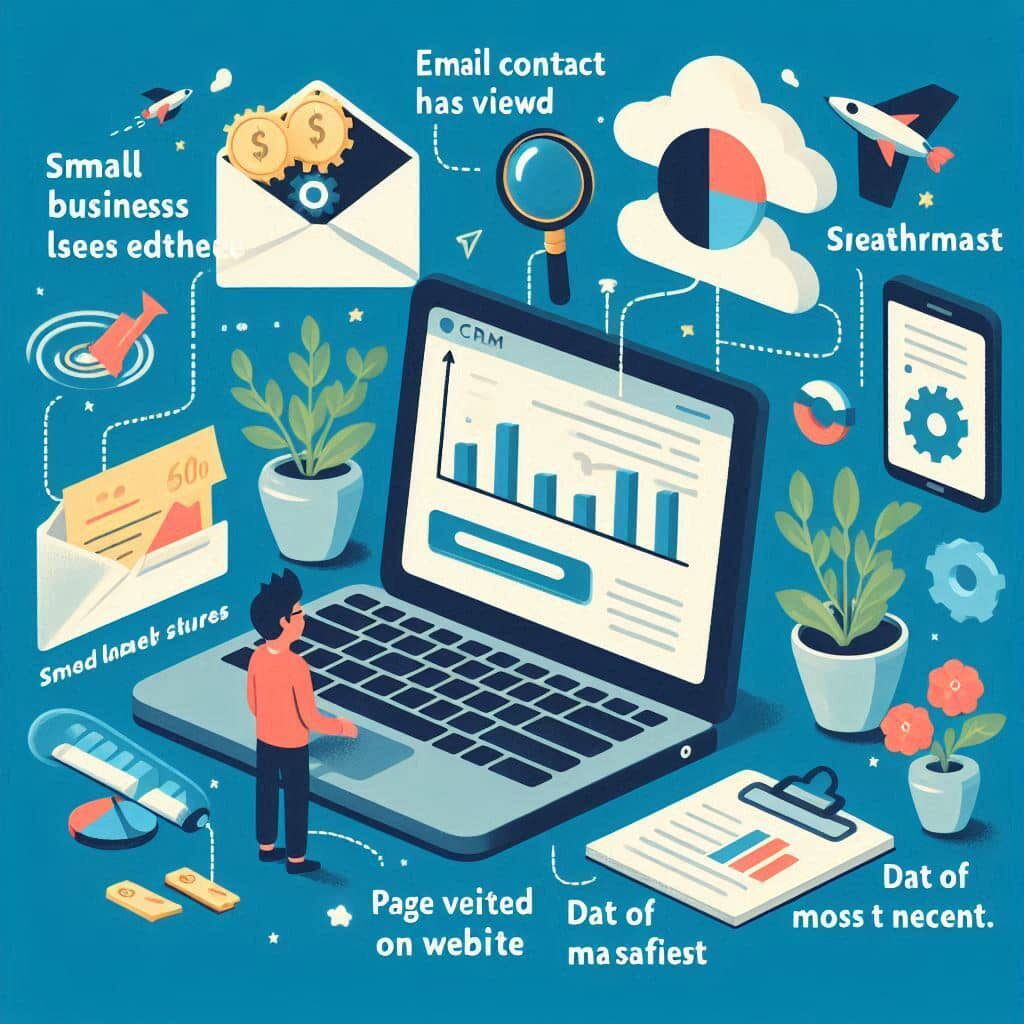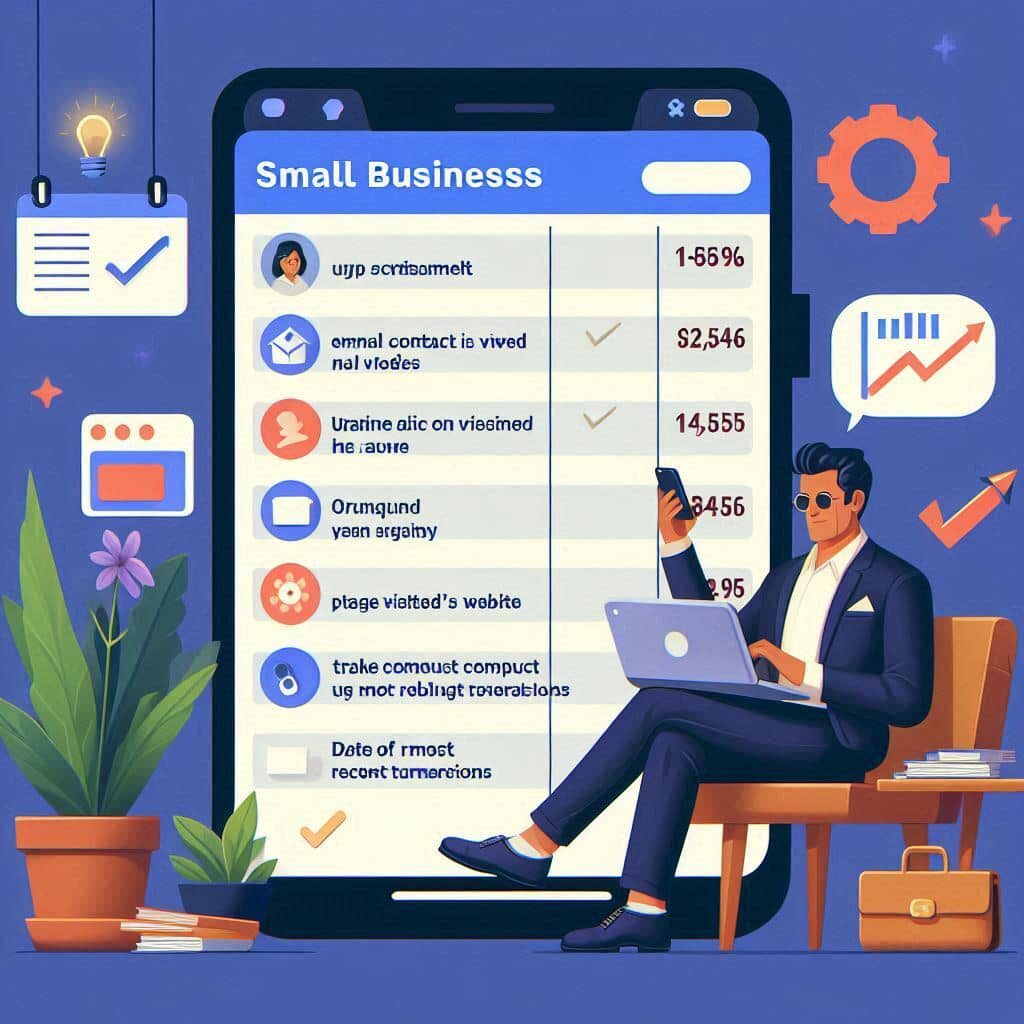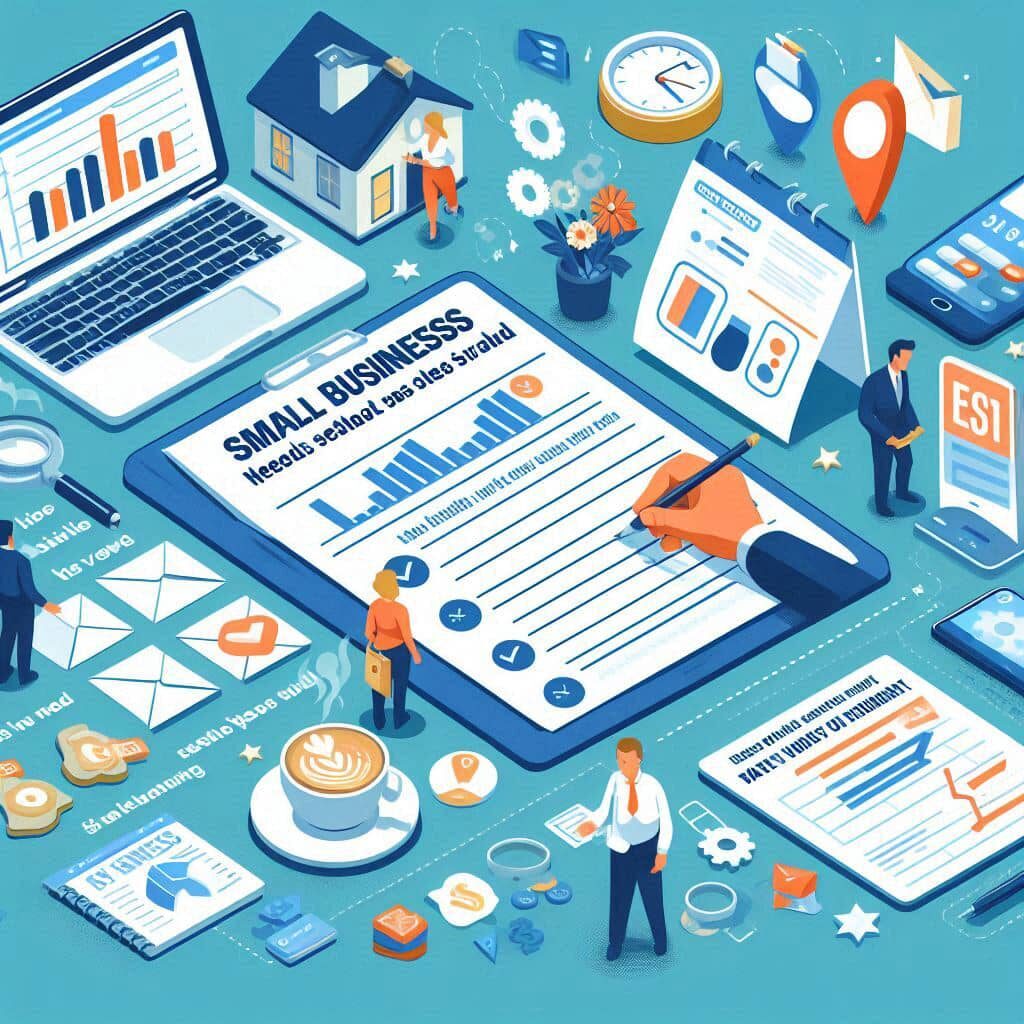CRM stands for “Customer Relationship Management” and refers to a software solution that allows business owners to effortlessly track all communications and cultivate connections with their leads and clients.
CRM software for small businesses replaces the numerous spreadsheets, databases, and apps that many organizations use to track customer data.
CRM implementation results in increased organization, efficiency, improved time management, and satisfied customers.

A CRM centralizes all of your sales lead and customer data. It also collects and organizes all communications (form fills, calls, emails, text messages, and meetings), documents, quotes, purchases, and tasks for each lead and client.
What does a CRM do for a small business?

All contact information, from leads to business partners, should be stored and managed in a CRM.
It could seem like a spreadsheet to you. What capabilities of a CRM are lacking in a spreadsheet?
If you merely track static information like name, email address, phone number, company name, website, etc., or if you have fewer than 100 contacts, a spreadsheet works fine.
When it comes to tracking more intricate and dynamic data, such as emails a contact has viewed, the pages they have visited on your website, or the date of their most recent transaction, a spreadsheet cannot match a CRM.
When leads and customers take action, your CRM updates automatically, but when you stop manually adding data to a spreadsheet, the data goes stale.

Lead scoring is the process by which the best CRM software determines if a lead is cold or hot.
The process the sales and marketing department uses to evaluate a lead’s worth is called lead scoring as per the guidelines you establish.
Lead-scoring criteria could be new clients, partners, and returning customers’ behavior patterns, among other behavioral patterns.
With out CRM Lead scoring is impossible.
What CRMs cant do.
What CRM tools cannot see, they cannot manage. Hence, the efficacy of the team as a whole is decreased if leads are external or non-systemic.
Only data management is done with certain CRM software.
All-in-one CRM systems, however, provide crucial functions like landing pages, quotations, invoicing, and sales and marketing automation to assist business owners in running their whole enterprise more effectively.
Information collection is just one aspect of a competent CRM. It enables you to use all of the information to:
- Send appropriate messages to leads and clients at the appropriate moments to personalize your communication at scale.
- Prioritize the hottest prospects for sales teams.
- Reduce the duration of the sales cycle
- Analyze, track, and enhance outcomes
CRM makes Sales and Marketing easy
CRM software boosts sales and marketing without requiring you to hire large staffs or spend a fortune on advertising.
A sales and marketing engine that elevates your company’s growth can be established when your CRM is integrated with marketing automation.
Marketing
CRM in marketing frequently changes the game because it provides options for testing, personalization, and strong insights that eventually result in higher sales.
Insights
It is feasible to examine trends and uncover insights that result in increased profitability when data is centralized in a CRM.
A company could assess, for instance, what traits their ideal clients with the highest lifetime values have in common.
As a result, you can allocate your advertising funds more wisely and keep money from going to leads who probably won’t be interested in your offering.
You can also raise revenue by using insights from your data. You could make packages or bundles to boost sales, for instance, if you can detect typical buying combinations.
The times when customers are most likely to make additional purchases can also be determined by your statistics.
Follow-up communications and offers might be scheduled to coincide with the timeline of the expected repurchase.
Personalization and Segmentation
With CRM, it’s possible to deliver the appropriate message to the right person at the right moment.
By integrating your CRM with a sales and marketing automation platform, you may send text messages and emails that are tailored to a specific customer’s recent behavior.
Consider the scenario where a lead who hasn’t interacted with you lately clicks on a link in an email you sent promoting a unique promotion.
Perhaps you should mark the lead as “re-engaged,” send them an email with a catchy customer story, and assign a task for a sales representative to give them a call.
A McKinsey survey found that 76% of consumers said that personalization encouraged them to explore a company, and 78% said that individualized content increased their likelihood of making another purchase.
Personalization is a big competitive advantage. With tailored messaging, you can leverage all of the information in your CRM database to forge closer bonds with your clients.
Emails that dynamically extract information from your CRM and emails that are automatically sent out in response to certain activities, like requesting a consultation, allow you to customize your communications at scale using marketing automation.
Sales
CRM software for sales improves visibility, prioritizes, and follows up on leads, hence streamlining the entire sales process.
Visibility
Your sales force needs visibility in order to perform at its peak, and a CRM gives it.
When all lead and customer data is in one location, it makes it easier for teammates to transfer over accounts in the event that the account owner changes because all information about the person or business is recorded and easily accessed.
Because you can see exactly what a lead has done as a sales representative, you can tailor your interaction and motivate them to take the next step.
Lead scoring, which determines a lead’s interest in your product or service, is one way a CRM assists the sales team in prioritizing their outreach efforts. The sales staff prioritizes their responsibilities based on which leads have the greatest lead ratings.
Additionally, you can give client outreach top priority in your CRM. Customers who may be interested in a new product and records with contract renewal dates coming up can be marked for follow-up by the sales staff.
When used in tandem with VoIP phone systems, CRM systems also increase caller visibility. When a lead phones a sales representative, the sales representative’s computer screen quickly displays the lead’s record and their phone number.
Using a CRM, sales management can also have more visibility. A complete sales funnel may be easily monitored by a sales manager, together with the actions and performance of individual sales representatives.
Assessing for enhancement
The secret to better marketing is testing.
You may test almost anything with a powerful marketing CRM, including various promotions, SMS messages, advertisements, the frequency of lead calls, and more.
Instead of relying solely on intuition, testing data demonstrates which choice maximizes profitability.
Hiring a virtual assistant for my Facebook Marketplace store was one of the best decisions I’ve ever made. Their support has been invaluable in helping me achieve my business goals and drive success. virtual assistant
I am glad the virtual assistant was able to help you.
Excellent read, I just passed this onto a friend who was doing some research on that. And he just bought me lunch since I found it for him smile Therefore let me rephrase that: Thanks for lunch!
Thank you and i am glad you found some value.
Hey, I think your site might be having browser compatibility issues. When I look at your website in Firefox, it looks fine but when opening in Internet Explorer, it has some overlapping. I just wanted to give you a quick heads up! Other then that, terrific blog!
Thank you for alerting me on this.